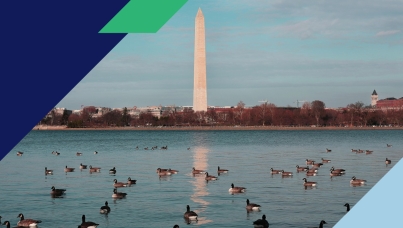The Insurance Industry's Reputation after Hurricane Katrina
The hurricanes of 2005 had a devastating effect on the life and livelihood of Gulf Coast residents, and could be having a negative effect on the insurance industry. Recovery from the tremendous damage wreaked by Hurricane Katrina will cost unprecedented amounts of money: the U.S. government's most recent budget estimates spending for hurricanes Katrina and Rita at more than $100 billion. Recently, the Bush administration asked Congress to approve another $18 billion in aid, still far short of what's needed, according to insurance industry analysts. Tensions among the key players--federal, state, and local governments, disaster and relief agencies, the insurance industry, and hundreds of thousands of policyholders--seem unavoidable.
In the wake of Hurricane Katrina, Ipsos conducted an online study with over one thousand adults in the U.S. The results for the insurance industry are troubling. The insurance industry rates below all levels of government (national, state, and local) and aid organizations in its response to the hurricane.
While nearly all respondents approve of the job being done by charities and non-profits, only 18% approve of the job being done by the insurance industry. Forty-three percent of Americans disapprove of the job being done by insurance companies (39% didn't take sides).
The answers are indicative of Americans' attitudes towards the insurance industry on the whole, which received the second lowest average favorability rating (33 on a scale of 0-100) after the oil and energy industry (23). Americans' attitudes toward the insurance industry tends to be more positive when evaluating its performance on specific attributes, such as business efficiency, customer service, quality of services, and management. However, the industry's key reputation drivers--those effecting overall favorability most strongly--are ethical behavior, trust, service quality, care for communities, and being perceived as a good corporate citizen. The attribute least correlated with overall favorability pertains to profitability and return to shareholders.
While unprecedented disasters like Hurricane Katrina will always test the fortitude of insurance companies' images, they can otherwise improve their reputation by leveraging and continuously enhancing their performance in important areas where they are strongest and addressing priority areas where they are under-performing. With the public eye presently on the insurance industry--and scrutiny likely to intensify as the next hurricane season approaches--companies need to manage their exposure in more ways than before.
The Ipsos i-REP Insurance Advisor was conducted by Ipsos Public Affairs between September 22-27, 2005, among a representative sample of 1,064 adults nationwide. The margin of error is +/- 3.1 for all adults; margin of error for subgroups may be higher. The interviews for this study were conducted online.



